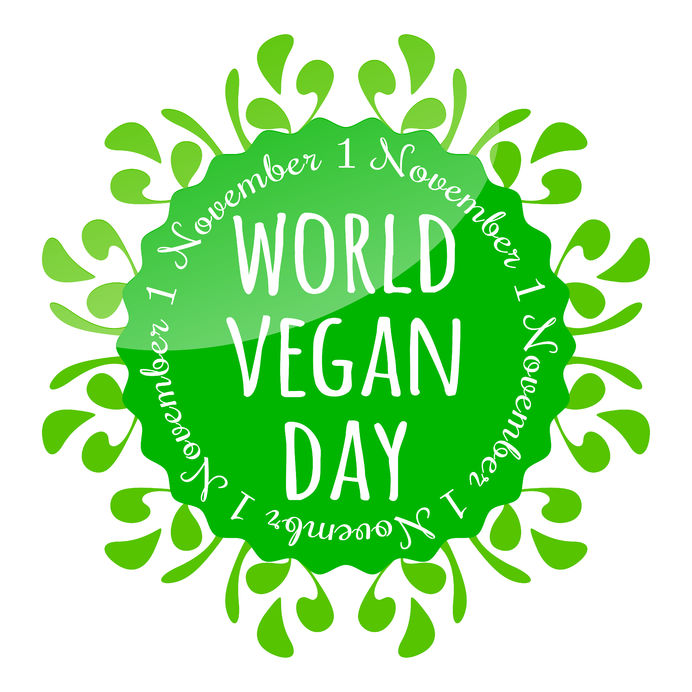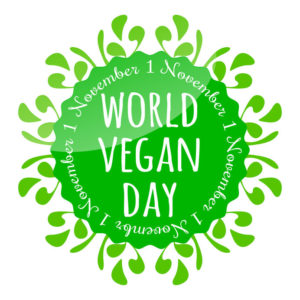World Vegan Day History
In 1944, in the UK, Donald Watson took the first and last letters of the word “vegetarian,” and created the word “vegan” to indicate being vegetarian from beginning to end – (not only not eating any animals, but also not eating any products that come from animals, not using any products that come from animals, and simply not using animals for our human purposes – true Ahimsa, “dynamic harmlessness”).
Certainly there were those who had such beliefs and lived by such committed values long before 1944, but, up until that time, there was not a single word with such meaning.
Watson entered the word into the lexicon and also registered the first Vegan Society, in Britain, on November 1, 1944.
Thus, World Vegan Day, a special annual holiday celebrating vegan living, is celebrated on November 1st each year.
It is celebrated with festivals around the country and all around the world.
What is a Vegan?
Vegetarians do not eat meat, fish, or poultry. Vegans, in addition to being vegetarian, do not use other animal products and by-products such as eggs, dairy products, honey, leather, fur, silk, wool, cosmetics, and soaps derived from animal products.
Why Veganism?
People choose to be vegan for health, environmental, and/or ethical reasons. For example, some vegans feel that one promotes the meat industry by consuming eggs and dairy products. That is, once dairy cows or egg-laying chickens are too old to be productive, they are often sold as meat; and since male calves do not produce milk, they usually are raised for veal or other products. Some people avoid these items because of conditions associated with their production.
Many vegans choose this lifestyle to promote a more humane and caring world. They know they are not perfect, but believe they have a responsibility to try to do their best, while not being judgmental of others.
Vegan Nutrition
The key to a nutritionally sound vegan diet is variety. A healthy and varied vegan diet includes fruits, vegetables, plenty of leafy greens, whole grain products, nuts, seeds, and legumes.


Dental Health, Fruit, Juice, Veggies and Water
A diet high in saturated fat, which can clog our arteries and lead to inflammation, is considered a key underlying causal factor for periodontal diseases like gingivitis. But, what about too much fruit and vegetables? By looking in your mouth your dentist...

Is Your Child New To Braces?
Tips for Braces When living with braces, there is a large amount of extra oral hygiene and care involved for kids to keep their mouth healthy and clean. Braces can be uncomfortable at times, care can be time consuming, and kids may feel overwhelmed...

Adult Orthodontics: Is It Too Late To Get Braces?
With developments in orthodontics in recent years, more and more adults are seeking treatment for oral difficulties they've been experiencing since childhood. There are significant differences between adult orthodontics and that of children and teens,...

